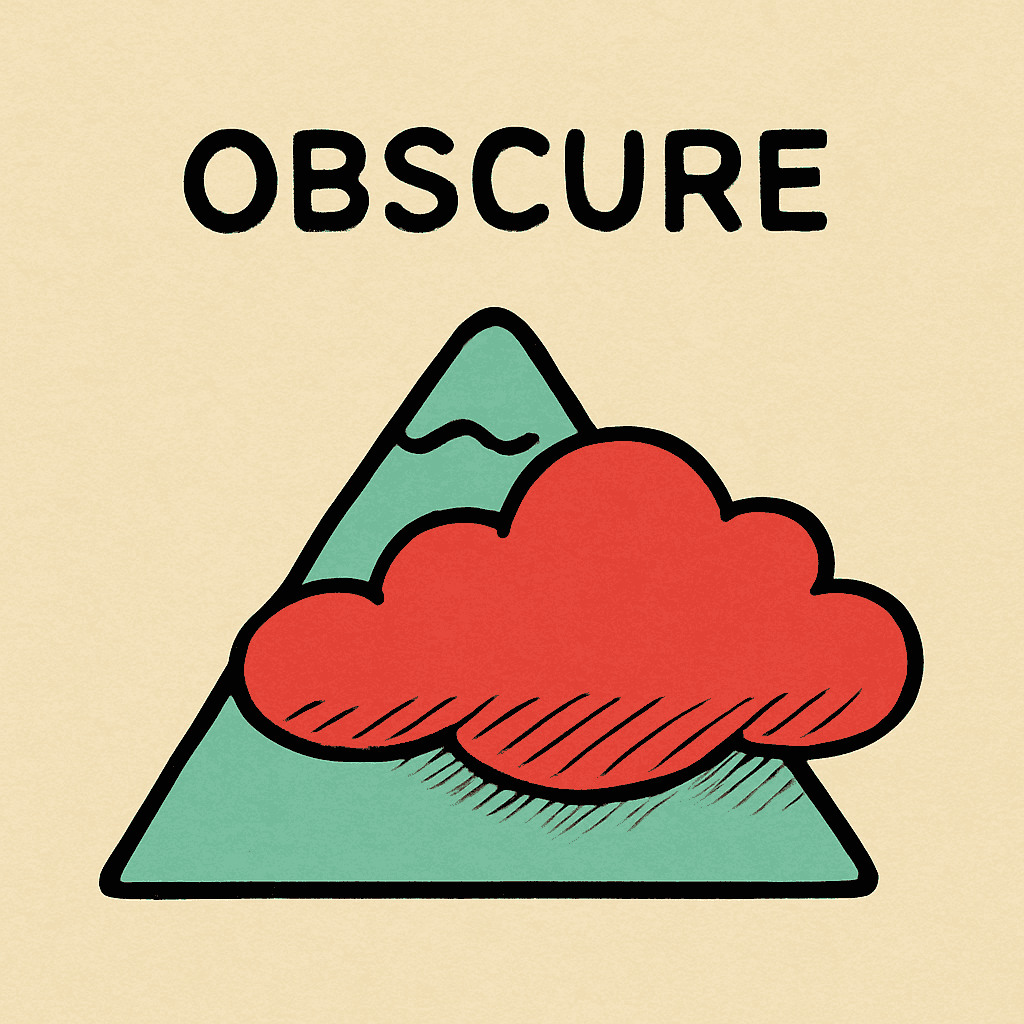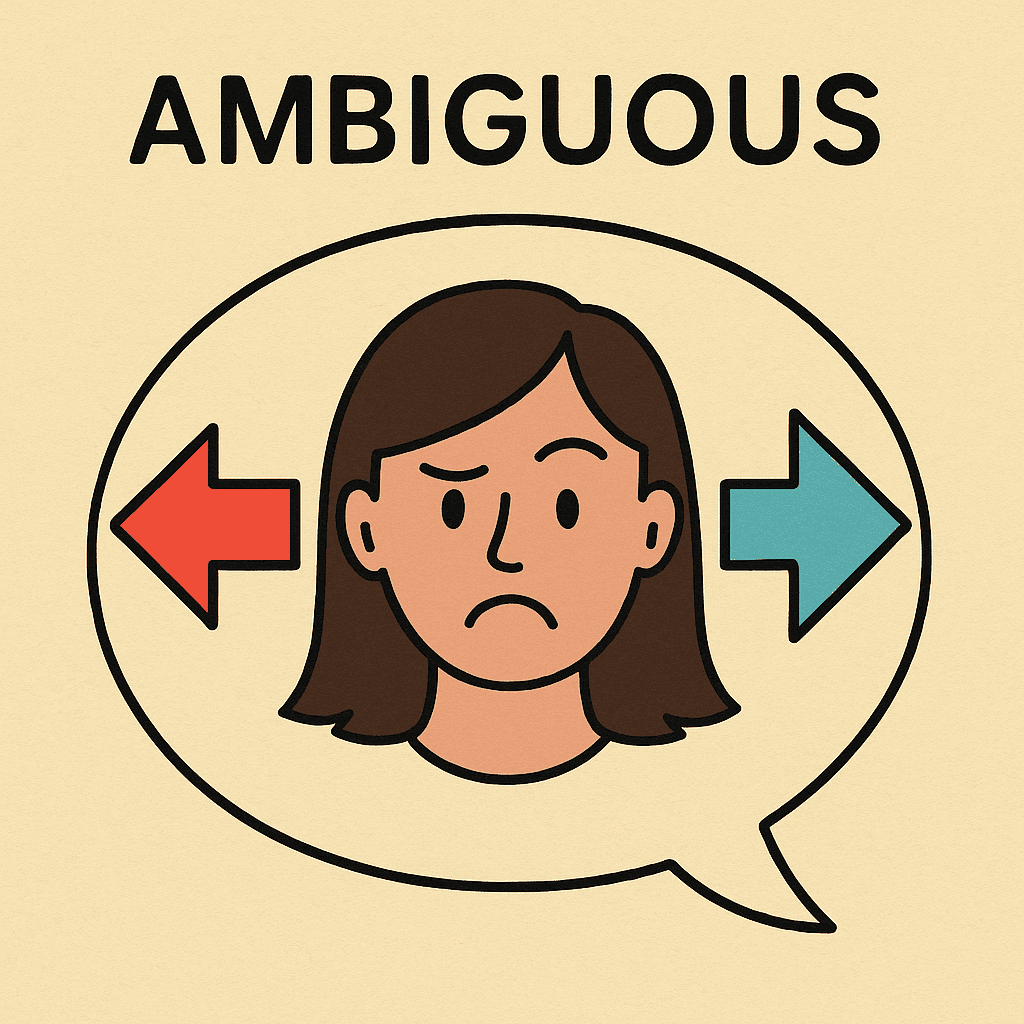Meaning
Obscure has two main uses:
- Adjective – not well known, difficult to understand, hidden. Example: an obscure author, an obscure rule.
- Verb – to make something unclear, difficult to see, or hide. Example: Clouds obscured the mountain.
Grammar and Usage
- Adjective: Describes a noun. Structure: "obscure + noun" e.g., obscure idea, obscure village.
- Verb (transitive): Used with an object. Structure: "obscure + object" e.g., Thick fog obscured the road.
Common Phrases
- Obscure origins (unknown beginnings)
- Obscure reference (difficult to understand allusion)
- Obscure meaning (unclear significance)
- Obscure figure (person not well known)
Collocations
- Obscure + facts
- Obscure + details
- Obscure + writer
- Obscure + reason
- Obscure truth
- Clouds + obscure + view
Examples
- The instructions were so obscure that no one could follow them.
- The poet remained obscure during his lifetime but became famous later.
- His real motives are obscure to most people.
- Tall buildings obscured the view of the sunset.
- The origins of the festival are obscure.
- She wore dark glasses to obscure her identity.
- The novel is filled with obscure references to ancient myths.
- His handwriting is so obscure that I can hardly read it.
Synonyms or Related
- Adjective: unknown, hidden, mysterious, ambiguous, vague
- Verb: conceal, hide, blur, cover, mask

